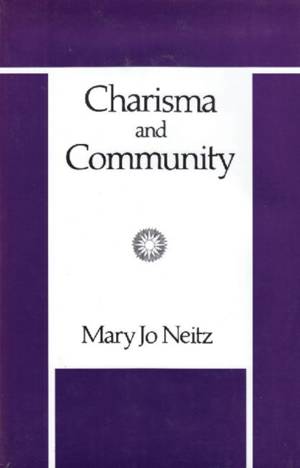
- Afhalen na 1 uur in een winkel met voorraad
- Gratis thuislevering in België vanaf € 30
- Ruim aanbod met 7 miljoen producten
- Afhalen na 1 uur in een winkel met voorraad
- Gratis thuislevering in België vanaf € 30
- Ruim aanbod met 7 miljoen producten
Zoeken
€ 143,95
+ 287 punten
Omschrijving
Since Comte, social scientists have tended to assume that modernization, along with a triumphant scientific rationality, has destroyed the legitimacy of religion as a social reality. However, this crisis of legitimacy has never been examined in a setting where religious reality is affirmed. This book fills that gap, exploring the meaning of religious reality in the lives of a group of Catholic Charismatics to discover how belief is created, developed, and maintained.Charismatics, or Neo-Pentecostals, tend to be white, relatively affluent, well educated, and believe that they possess certain gifts including the power of healing, prophesy, discernment of evil spirits, and speaking in tongues. In describing and analyzing this religious minority, the author provides a basis for reevaluating sociological assumptions about religion and modernity. She asks: to what extent can religion define the social world? Are religious values necessarily irrelevant to most institutional contexts? Is religious reality only persuasive in the context of family and primary group relations? What are the tensions between religious realities and other beliefs? Her answers have implications for all ways of making sense of the world, including common sense or science.Neitz situates the Charismatic Renewal in a broader social and historical context. She examines the antecedents of Neo-Pentecostalism in American culture and compares this movement with the secular, self-awareness movement. In so doing she shows what is unique about the Charismatics, and what they share with religious predecessors and members of contemporary secular movements.
Specificaties
Betrokkenen
- Auteur(s):
- Uitgeverij:
Inhoud
- Aantal bladzijden:
- 275
- Taal:
- Engels
- Reeks:
Eigenschappen
- Productcode (EAN):
- 9780887381300
- Verschijningsdatum:
- 31/12/1987
- Uitvoering:
- Hardcover
- Formaat:
- Genaaid
- Gewicht:
- 589 g

Alleen bij Standaard Boekhandel
+ 287 punten op je klantenkaart van Standaard Boekhandel
Beoordelingen
We publiceren alleen reviews die voldoen aan de voorwaarden voor reviews. Bekijk onze voorwaarden voor reviews.











